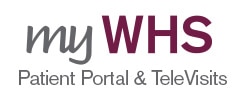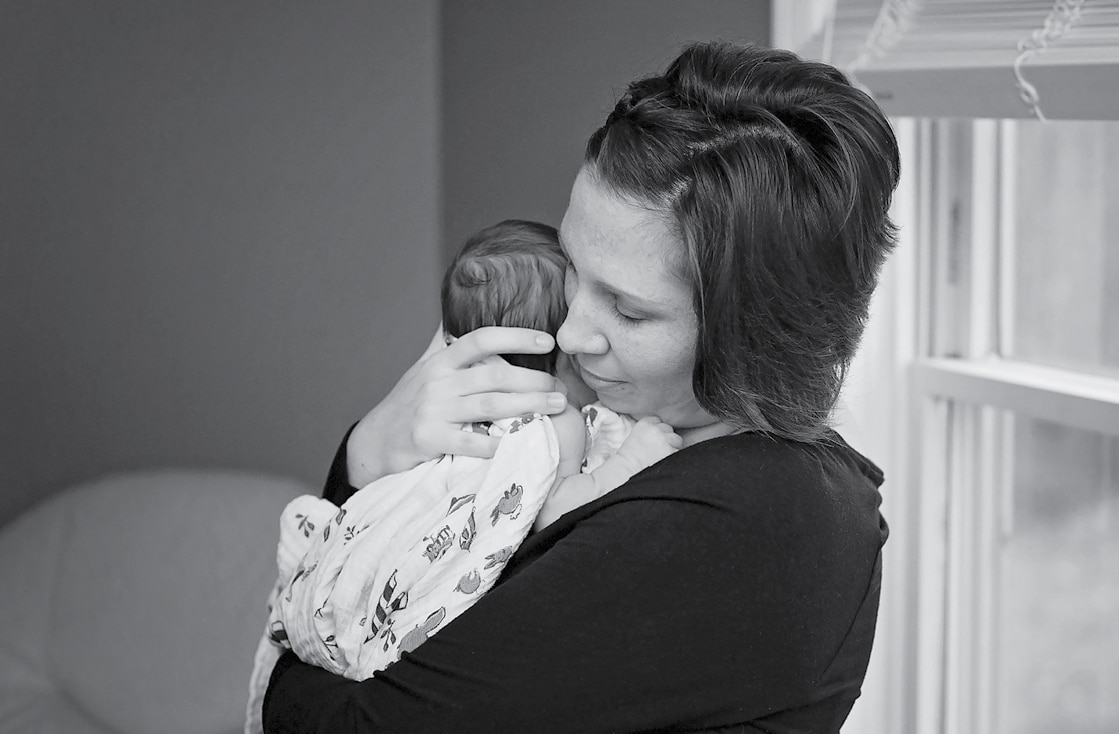IT IS IMPOSSIBLE TO PREDICT WHETHER A BABY WILL NEED A LITTLE EXTRA MEDICAL ATTENTION WHEN HE OR SHE ENTERS THE WORLD. THAT’S WHY A PROVIDER WITH SPECIAL TRAINING IN HELPING BABIES BREATHE IS PRESENT FOR EVERY BIRTH AT THE WHS WASHINGTON HOSPITAL.
First-time expectant mother Barrie Jones, 33, of Scenery Hill had a routine pregnancy, but there was one worry she couldn’t shake—the thought that her baby could have a seizure just after birth, as she had.
“The seizure I had as a newborn was my only one, but it made me scared of what could happen when I had my baby,” she says. “Even though mine wasn’t a high-risk pregnancy, I decided to deliver at a hospital in Pittsburgh that had a Level 3 neonatal intensive care unit [NICU] to calm that nagging worry in my head.”
As Barrie’s due date approached last fall, another concern emerged—the thought of getting stuck in big-city traffic while in labor during the hour-long drive to the hospital. Barrie started having contractions at home on Monday, Nov. 6. Her water broke that night as she and her husband, Anthony, reached the end of their driveway on the way to Pittsburgh. Intense pain engulfed Barrie.
“I worried about having my baby in one of the tunnels leading into Pittsburgh,” Barrie says. “As we drove toward the city, I was in excruciating pain. I told my husband to turn around and take
me to WHS Washington Hospital.”
READY TO RESUSCITATE
The Joneses arrived at WHS Washington Hospital at 11:30 p.m. Within minutes, Barrie was settled in a room, where members of the labor and delivery team administered medication to reduce her discomfort and began coaching her through several hours of labor. In the early morning, as delivery seemed to be getting closer, another provider arrived: a member of the Neonatal Resuscitation Team. This group includes two neonatal nurse practitioners and three pediatricians, all of whom are trained in resuscitating and providing breathing support to newborns. The team routinely practices resuscitation procedures for full-term and premature babies in Washington Health System’s Simulation Laboratory.
“The obstetricians at WHS Washington Hospital are fantastic, but their responsibility is caring for the women who are giving birth,” says Casey Caddell, RN, BSN, CRNP-BC, Neonatal Nurse Practitioner at WHS Washington Hospital. “A separate healthcare provider trained in neonatal resuscitation is available to intervene if a baby delivers and is not breathing well, or at all.”
When the Neonatal Resuscitation Team member arrives in the labor and delivery room, he or she, with the help of a nurse and family practice resident physician, sets up a warming bed and checks to ensure it’s functioning properly. If a baby is born without respiratory distress and a brief exam reveals no immediate medical concerns, the care team congratulates the parents and leaves the new family to bond. If the baby has trouble breathing, treatment begins immediately.
“We bring the baby to the warmer for an assessment and start resuscitation measures, if necessary,” Caddell says. “Rarely, we may have to put a breathing tube in the baby’s airway. Once the baby is stable, we make an assessment of whether he or she can stay here or may need a higher level of care. We can consult a neonatologist in the city via video conference about how to manage a sick
infant or whether he or she should be transferred, and parents can pose questions to the specialist.”
The Neonatal Resuscitation Team is a new addition to the services at WHS, illustrating the staff’s commitment to high-quality women’s health care.
A GREAT TEAM
Fortunately, Barrie’s son, Weston, who arrived on the morning of Nov. 7 weighing 6 pounds, 5 ounces, and measuring 20 inches long, didn’t need the Neonatal Resuscitation Team’s services.
“I didn’t have a birth plan—my plan was that I wanted both me and Weston to be happy and healthy, and we were,” Barrie says. “Everyone at WHS Washington Hospital treated us with such compassion. I learned that a local community hospital can deliver care that’s just as high-quality as a big-city facility’s. I hope to have more children, and I hope that the same great team at WHS Washington Hospital can look after my next baby.”



